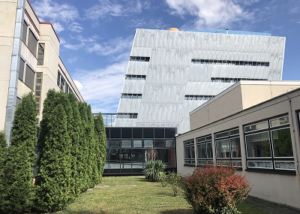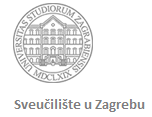Home » 9. semestar i naslovni DV – NASTAVNIČKI SMJER – dvopredmetni
Category Archives: 9. semestar i naslovni DV – NASTAVNIČKI SMJER – dvopredmetni
Jezik i kognicija: od teorije do primjene
Instructor: Associate professor Renata Geld, PhD Course title: Language and cognition: from theory to application (Jezik i kognicija: od teorije do primjene) Language: English Number of hours per semester: 30 hours ECTS: 4 credits Level: graduate (kolegij je otvoren svim studentima na diplomskoj razini anglistike) Course content: Students attending this course will be encouraged to […]
Jezik i kognicija: od teorije do primjene (arh.)
Instructor: Assistant professor Renata Geld, PhD Course title: Language and cognition: from theory to application (Jezik i kognicija: od teorije do primjene) (do 2020./21.) Language: English Number of hours per semester: 30 hours ECTS: 4 credits Level: graduate (kolegij je otvoren svim studentima na diplomskoj razini anglistike) Course content: Students attending this course will be […]
Dvojezičnost
DIPLOMSKI STUDIJ ANGLISTIKE – NASTAVNIČKI SMJER, od 2016/2017 JEDNOPREDMETNI/DVOPREDMETNI STUDIJ 3. semestar Naziv kolegija: DVOJEZIČNOST Nositelj kolegija: dr. sc. Stela Letica Krevelj, docent Nastavnik: dr.sc. Stela Letica Krevelj, docent ECTS-bodovi: 5 Jezik: engleski Trajanje: 1 semestar (III. semstar diplomskog studija) Status: izborni Oblik nastave: 2 sata predavanja i 2 sata seminara Uvjeti: Uvjeti: Položen ispit […]
Učenici s posebnim potrebama : sljepoća i ovladavanje drugim jezikom
DIPLOMSKI STUDIJ ANGLISTIKE – NASTAVNIČKI SMJER 2014/2015 DVOPREDMETNI STUDIJ 9. semestar Naziv kolegija: Učenici s posebnim potrebama: sljepoća i ovladavanje drugim jezikom Nositelj kolegija: prof. dr. sc. Renata Geld, docent ECTS-bodovi: 3 Jezik: engleski Trajanje: 1 semestar Status: izborni Oblik nastave: 2 sata predavanja + 2 sata seminara Uvjeti: — Ispit: kontinuirana evaluacija (2 testa […]
Učenici s posebnim potrebama : sljepoća i ovladavanje drugim jezikom-arhiva
DIPLOMSKI STUDIJ ANGLISTIKE – NASTAVNIČKI SMJER 2013/2014 DVOPREDMETNI STUDIJ 9. semestar Naziv kolegija: Učenici s posebnim potrebama: sljepoća i ovladavanje drugim jezikom Nositelj kolegija: prof. dr. sc. Renata Geld, docentNastavnik: dr. sc. Renata Geld, docent ECTS-bodovi: 3 Jezik: engleski Trajanje: 1 semestar Status: izborni Oblik nastave: 2 sata predavanja + 2 sata seminara Uvjeti: – Ispit: kontinuirana evaluacija (2 testa […]
Vrednovanje jezične i komunikacijske kompetencije
DIPLOMSKI STUDIJ ANGLISTIKE – NASTAVNIČKI SMJER, od 2010/2011 DVOPREDMETNI STUDIJ 9. ili 10. semestar Naziv kolegija: VREDNOVANJE JEZIČNE I KOMUNIKACIJSKE KOMPETENCIJE Nositelj kolegija: dr. Marta Medved Krajnović, izv. prof.Nastavnik: dr. Marta Medved Krajnović, izv. prof., Stela Letica KreveljECTS-bodovi: 3Jezik: engleskiTrajanje: 1 semestarStatus: izborniOblik nastave: 2 sata predavanja i 2 sata seminaraUvjeti: —Ispit: Kontinuirano praćenje i […]
Praksa 1 (3. sem.)
DIPLOMSKI STUDIJ ANGLISTIKE – NASTAVNIČKI SMJER DVOPREDMETNI STUDIJ 3. semestar Naziv kolegija: PRAKSA 1 Nositelj kolegija: dr.sc. Renata Geld, docent Nastavnici: izv. prof. dr. sc. Renata Geld, dr. sc. Bojan Prosenjak, v. asist., Nives Kovačić, asist. ECTS- bodovi: 2 boda Jezik: engleski Semestar: III. semestar diplomskog studija Status: obvezni Oblik nastave: Nastava se izvodi kroz […]
STARI-Učenici s posebnim potrebama : sljepoća i ovladavanje drugim jezikom
DIPLOMSKI STUDIJ ANGLISTIKE – NASTAVNIČKI SMJER 2010/2011 DVOPREDMETNI STUDIJ 9. semestar Naziv kolegija: Učenici s posebnim potrebama: sljepoća i ovladavanje drugim jezikomNositelj kolegija: prof. dr. Jelena Mihaljević DjigunovićNastavnici: Dr. Renata GeldECTS-bodovi: 3Jezik: engleskiTrajanje: 1 semestarStatus: obvezniOblik nastave: 2 sata predavanja + 2 sata seminaraUvjeti: —Ispit: kontinuirana evaluacija (2 testa i projektni zadatak)Cilj: Stjecanje uvida u […]
Individualne razlike u usvajanju jezika
DIPLOMSKI STUDIJ ANGLISTIKE – NASTAVNIČKI SMJER DVOPREDMETNI STUDIJ 9. semestar Naziv kolegija: INDIVIDUALNE RAZLIKE U USVAJANJU JEZIKANositelj kolegija: prof. dr. Jelena Mihaljević DjigunovićNastavnik: prof. dr. Jelena Mihaljević DjigunovićECTS–bodovi: 3 bodaJezik: engleskiSemestar: IX.Status: izborniOblik nastave: 2 sata predavanja i 2 sata seminaraUvjeti: —Ispit: Kontinuirano praćenje i vrednovanje – krajnja ocjena temelji se na rezultatima aktivnoga sudjelovanja […]



